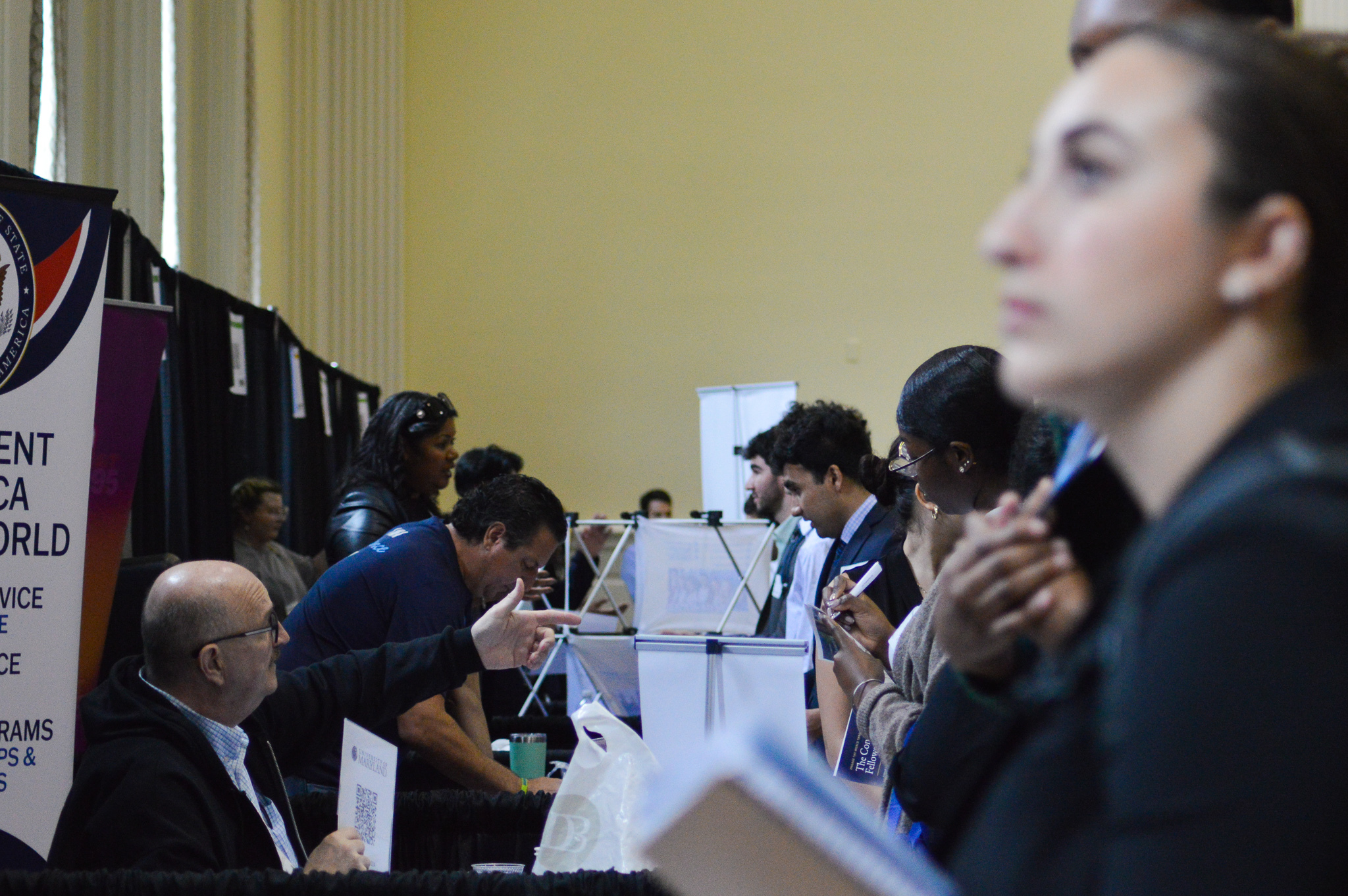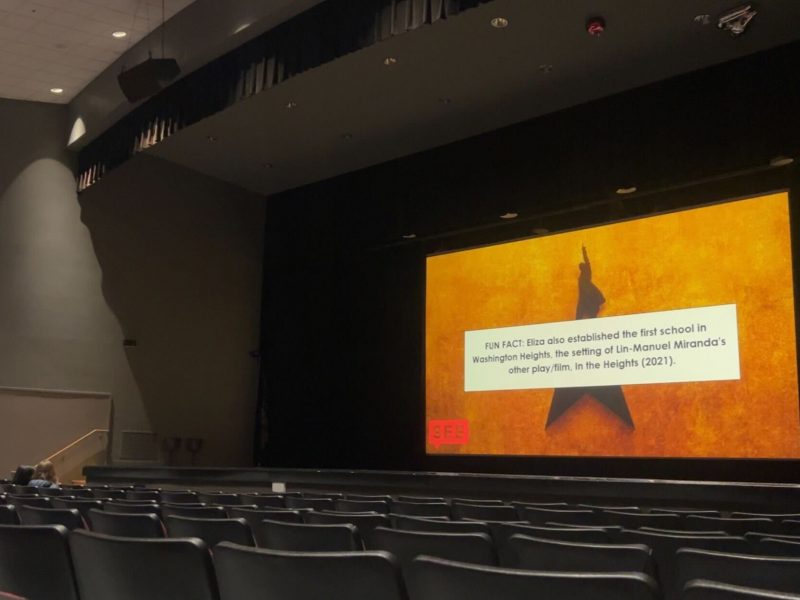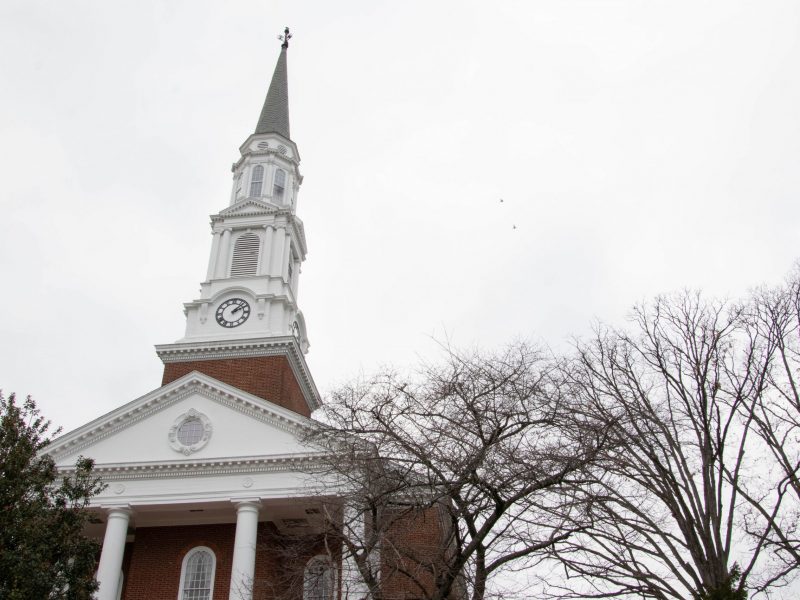In an era where we’re trained to market ourselves on social media and dating apps, campus career fairs are the professional equivalent.
Business casual attire and polished resumes are the usual requirements for workshops where students can rub elbows with potential employers and stack up on LinkedIn connections.
As an English major, it’s rare that I meet a fellow humanities student, because we’ve seemingly become a dying breed on campus. When I share my major with people, I’m often met with confused looks from students and unsolicited lectures on the unbalanced return on investment from adults.
But in reality, I don’t want to let other people’s career ambitions guide my academic journey. My favorite classes are my English ones, where we spend a whole class dissecting a classic novel rather than a frog.
[PrettyLittleThing brings East Coast pop up bus to UMD]
But opportunities for professional events and career guidance are slim to none for humanities students. The University of Maryland’s Fall Career and Internship Fair holds two full days dedicated to STEM majors, with only a single day allotted for all other majors.
Because college campuses have become breeding grounds for professional experiences, a postgrad job frenzy has emerged. Humanities majors like myself often consider if it’s time to jump ship and head into law or communications to make our university proud.
With this anxiety germinating within arts and humanities colleges, it’s led us to question our choices. Initial, genuine passion for the liberal arts has morphed into a gnawing sense of uncertainty.
Sometimes that same anxiety creeps into the classroom when we’ve spent thirty minutes discussing how a Shakespearean monologue makes us feel. Other times, I fear of my own obsolescence when AI technology can compose the same sentence that I wrote, but better and faster. A passion-driven career is now not only judged, but in danger.
Humanities majors often don’t have a direct postgrad career path in the same way that computer science or engineering majors do. A common fallback job as a teacher is not as desired due to the long hours and low salary.
The ambiguity of a humanities major has hurt its reputation, and students are often advised to pair it with another “practical” major. Instinctively, I tell people that I intend to practice law, a socially acceptable career choice, as a safety net for their fears and concerns.
[Cultural dishes shape heritage connections for Latinx students]
It is a well-intentioned piece of guidance, as there is an alarmingly unsaturated job market for humanities majors. Even if there is a space for them, they are in competition with their more career-oriented counterparts, such as communications and marketing majors.
In the age of seven dollar lattes and sky-high living costs, money talks. Thus, it would be unrealistic to completely quell the desires of a job with a comfortable salary.
Humanities majors cannot just read Hemingway for four years and expect to be hired freshly out of college. But there’s a delicate balance between being practical and completely crushing your passions, and that’s a tightrope I have yet to figure out how to walk.
College has evolved from a place of learning to a place of learning how to land a job. But instead of supporting students’ academic passions, universities propagate careerist, unattainable expectations for life after graduation.



